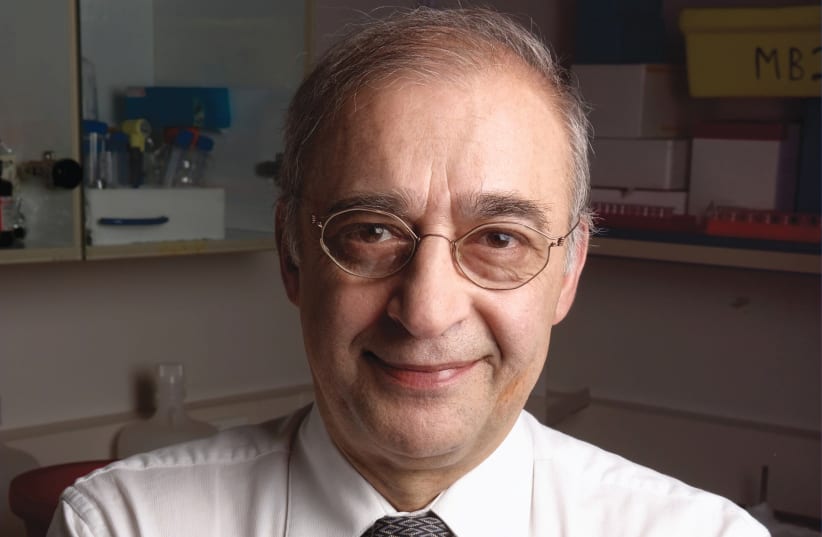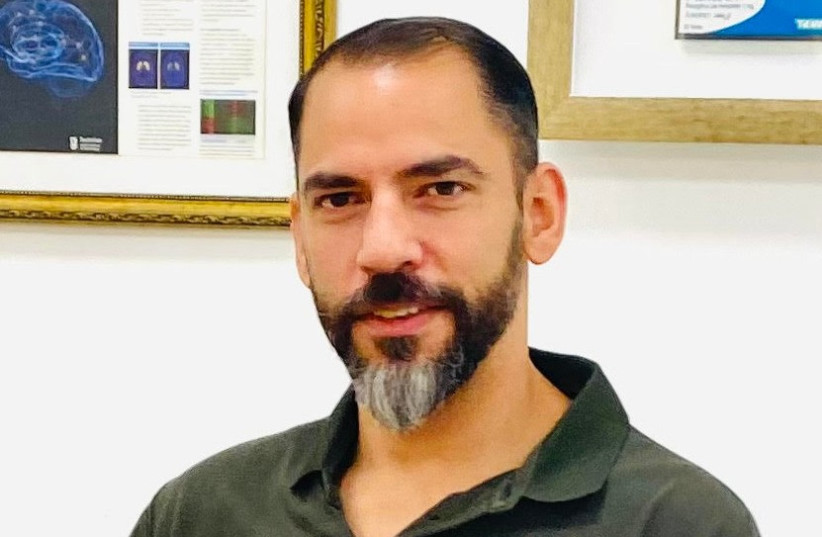Technion Prof. Emeritus Moussa Youdim recently got word that he will receive the 2022 Israel Prize in Life Sciences “for his pioneering, groundbreaking, scientific achievements in the field of neuropharmacology.”
Technion president, Prof. Uri Sivan, said Youdim’s “brilliant work has brought about a dramatic change in the understanding of neurodegenerative diseases and literally transformed the quality of life of Parkinson’s patients the world over.”
Youdim and previous Israel Prize winner Prof. Gideon Rechavi, with Prof. Peter Riederer of the University of Würzburg, were the first to identify the genes that are changed in the brains of people with Parkinson’s disease. These genes had been identified previously in an animal model by Israeli brain researcher Silvia Mandel.
Youdim went on to develop the widely used Parkinson’s disease drugs selegiline and rasagiline (Azilect), as well as the Alzheimer’s drug ladostigil.
Now 82, the president and chief scientific officer of Youdim Pharmaceuticals in Yokne’am is working on the next generation of drugs to treat these devastating neurodegenerative disorders.
“We have two drugs that nobody in the world has,” he said. “Not only do they show neuroprotective activity in four animal models of Parkinson’s disease, but they caused the regeneration of dopamine neurons that had degenerated in substantia nigra,” a group of neurons responsible for dopamine production.
He and his son Tal, who is CEO of Youdim Pharmaceuticals, talked about their progress toward bringing these potentially game-changing solutions to the market.
Endopump and a multitarget drug
“My father started with the idea of combining drugs with devices to enhance efficacy and targeting of the drugs to the brain,” said Tal Youdim.
A Technion-educated mechanical engineer who formerly worked in mitral valve technology, Tal Youdim co-invented the patent-pending Endopump. www.endo-pump.com
This device is a unique, streamlined way to deliver the company’s proprietary formulation of an FDA-approved compound commonly used to treat the motor symptoms of Parkinson’s disease.
Drug pumps available to Parkinson’s patients today are heavy, uncomfortable and difficult to use, he explained. “We think our approach will solve these problems.”
Endopump signed a collaboration agreement with a major medical device company to supply the device.
“We did a small study in pigs a few months ago that showed its efficacy and just finished a much larger study. When we have results of the larger study, we intend to start fundraising for the next stage,” Tal Youdim said.
Multitarget drug
Exegiline, the second company established last year by Youdim Pharmaceuticals, is developing a multitarget drug, MT-031, for the treatment of dementia and depression in patients with neurodegenerative diseases.
“We own 100% of the intellectual property of this compound that my father developed outside of the Technion,” said Tal Youdim. “We are fundraising $5 million to $10 million to start preclinical trials.”
Patented in the United States, Europe, and China, MT-031 is meant as an all-in-one drug to relieve depression, enhance cognition, and protect and restore neurons.
“In both Parkinson’s and Alzheimer’s, there is a predisposition to depression. We believe that the first neurons that die are the two neurotransmitters involved in depression: noradrenaline and serotonin,” Moussa Youdim explained.
“You need a multitarget drug or multiple drugs,” he said. “Multiple drugs aren’t good because of harmful drug interactions and a lack of synergy between them.”
The idea of joining parts of different drugs into one formulation addressing multiple issues came to him many years ago as he watched his children building with LEGO blocks.
MT-031 combines the neuroprotective piece of rasagiline (Azilect) with the anti-Alzheimer’s property of rivastigmine (Exelon), developed by Hebrew University Prof. Marta Weinstock-Rosin for treating confusion and dementia related to Alzheimer’s and Parkinson’s. (She later partnered with Youdim in developing ladostigil, which Youdim had designed.)
Solving more problems
Tal Youdim explained that the multitarget Exegiline drug could be the first to solve two major problems. One is that people with Alzheimer’s or Parkinson’s often cannot take standard antidepressants along with drugs that fight their neurological symptoms. The other is that rivastigmine (Exelon) on its own can cause side effects, such as nausea and diarrhea.
The combination MT-031 medication is expected to achieve the desired effects with lower potency and increased efficacy, thus avoiding those drawbacks.
“We’re hoping in a couple of years to get to first-in-human trials,” said Tal Youdim.
And not a moment too soon, said his father.
“We need new disease-modifying drugs for Alzheimer’s disease and for Parkinson’s disease – no question about it.”
Youdim Pharmaceuticals also has a subsidiary, BioShai, that aims to develop what could be the first blood test for early diagnosis of Parkinson’s disease, employing a cluster of genes identified in Parkinson’s patients’ brains.
BioShai received a major award and support from the Michael J. Fox Foundation for testing specific genes that Moussa Youdim and colleagues discovered could be blood biomarkers for Parkinson’s disease. The study of these genes in blood samples has been shown effective in demonstrating the progression of the disease.
A scholarly family
Moussa Youdim, born in Tehran to a scholarly family (hence the surname “Youdim” (from the Hebrew for “knowledge”) was educated in England and received his PhD in biochemistry and psychiatry at McGill University Medical School in Canada.
He then worked at the University of London, the University of Cambridge, and the University of Oxford before immigrating to Israel in 1977 to establish and head the Technion’s pharmacology department.
It was here that Youdim and his colleague, Prof. John Finberg, began developing the Parkinson’s drug together with Teva. By 1981, they knew they they had an effective drug on their hands, but it wasn’t until 2006 that Azilect was approved by the FDA for treating Parkinson’s patients.
For decades, Youdim managed the Eve Topf Center for the Study of Neurodegenerative Diseases at the Technion’s Rappaport Faculty of Medicine, as well as the US National Parkinson Foundation Centers of Excellence for Neurodegenerative Diseases Research.
He has published about 800 articles on various topics related to the brain, brain diseases and the nervous system, and has won nearly 50 international awards, as well as the Hershel Rich Prize and Henry Taub Prize from the Technion and the EMET Prize for Brain Science - and now the icing on the cake: the Israel Prize.

